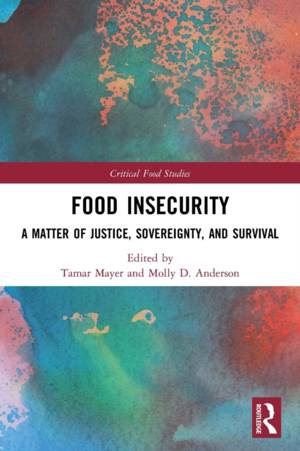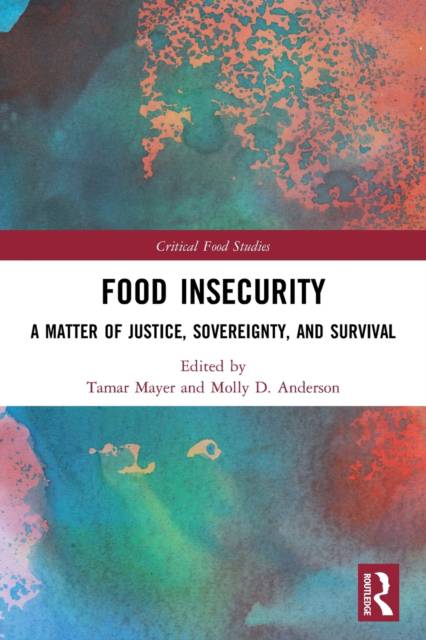
- Afhalen na 1 uur in een winkel met voorraad
- Gratis thuislevering in België vanaf € 30
- Ruim aanbod met 7 miljoen producten
- Afhalen na 1 uur in een winkel met voorraad
- Gratis thuislevering in België vanaf € 30
- Ruim aanbod met 7 miljoen producten
Food Insecurity
A Matter of Justice, Sovereignty, and Survival
Omschrijving
This book explores the experiences, causes, and consequences of food insecurity in different geographical regions and historical eras. It highlights collective and political actions aimed at food sovereignty as solutions to mitigate suffering.
Despite global efforts to end hunger, it persists and has even increased in some regions. This book provides interdisciplinary and historical perspectives on the manifestations of food insecurity, with case studies illustrating how people coped with violations of their rights during the war-time deprivation in France; the neoliberal incursions on food supply in Turkey, Greece, and Nicaragua; as well as the consequences of radioactive contamination of farmland in Japan. This edited collection adopts an analytical approach to understanding food insecurity by examining how the historical and political situations in different countries have resulted in an unfolding dialectic of food insecurity and resistance, with the most marginalized people-immigrants, those in refugee camps, poor peasants, and so forth-consistently suffering the worst effects, yet still maintaining agency to fight back.
The book tackles food insecurity on a local as well as a global scale and will thus be useful for a broad range of audiences, including students, scholars, and the general public interested in studying food crises, globalization, and current global issues.
Specificaties
Betrokkenen
- Uitgeverij:
Inhoud
- Aantal bladzijden:
- 256
- Taal:
- Engels
- Reeks:
Eigenschappen
- Productcode (EAN):
- 9780367506155
- Verschijningsdatum:
- 29/04/2022
- Uitvoering:
- Paperback
- Formaat:
- Trade paperback (VS)
- Afmetingen:
- 156 mm x 234 mm
- Gewicht:
- 358 g

Alleen bij Standaard Boekhandel
Beoordelingen
We publiceren alleen reviews die voldoen aan de voorwaarden voor reviews. Bekijk onze voorwaarden voor reviews.










